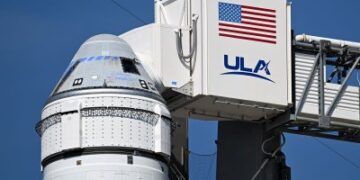At the recent Dell Technologies World 2024 event, Michael Dell boldly stated that the past forty years of Dell’s history were merely a prelude to the age of artificial intelligence (AI). This declaration may have prompted reflection among the company’s longstanding employees regarding the significance of their contributions.
Despite any skepticism, Dell’s assertion holds weight. AI has the potential to transform the technology sector, even in cases where its applications may appear contrived. For example, attendees at the event experienced an AI-generated songwriting session alongside discussions on storage rebates.
Unfazed by doubts, Dell is fully embracing AI, guiding his company towards a future driven by this revolutionary technology. The recent event highlighted Dell’s partnership with Nvidia through the AI Factory initiative, the launch of AI-ready hardware like PCs equipped with Microsoft Copilot+, and expanded collaborations with industry giants such as Hugging Face and Meta.
For IT buyers contemplating AI adoption, Dell’s message is clear: they are committed to offering comprehensive AI solutions for enterprises. Nick Brackney, a senior consultant at Dell specializing in generative AI, stresses the coherence that AI brings to the company’s diverse product offerings.
Brackney draws parallels between the impact of AI and the emergence of smartphones in the early 2000s, suggesting that AI’s influence surpasses even that transformative era. He envisions a future where individuals rely on AI for instant knowledge and expertise, reducing the need for extensive personal expertise across various domains.
As Dell navigates the AI landscape, Brackney underscores the importance of tailoring AI solutions to each organization’s specific needs. By understanding a client’s unique goals, user base, and data volume, Dell can recommend the most suitable AI model, whether it involves fine-tuning, RAG, or pre-trained models.
Brackney emphasizes the importance of aligning the infrastructure with the chosen AI model to ensure customers optimize their investments without over-provisioning. Whether deploying AI on laptops, workstations, servers, or storage solutions, Dell aims to provide a cohesive AI ecosystem tailored to diverse AI requirements.
Inside the AI tech stack
During Dell Technologies World, Dell introduced a range of five new AI-powered notebook PCs featuring Qualcomm Snapdragon processors and Microsoft Copilot+. These devices cater to various AI applications, showcasing Dell’s dedication to integrating AI across its product lineup.
Microsoft and Dell jointly unveiled five new models of AI-powered PCs on May 20, 2024, at separate events. These models, including XPS 13, Inspiron 14 Plus, Inspiron 14, Latitude 7455, and Latitude 5455, come equipped with custom-integrated Qualcomm Oryon CPU, premium GPU, and neural processing unit (NPU) for high-speed AI performance, processing up to 45 trillion operations per second.
According to Brackney, the incorporation of AI into products by tech firms will drive the demand for local processing to avoid the high costs associated with hosted AI infrastructure. This shift aims to boost efficiency and productivity for knowledge workers without requiring substantial investments in infrastructure or data scientists.
Enhancing AI Experiences
For organizations seeking to develop dedicated AI applications, Dell’s AI PCs offer a valuable solution. These PCs cater to sectors like finance, HR, marketing, and sales, providing a platform for AI suite experiences. Additionally, organizations can leverage Dell’s AI products and services for advanced AI model training and fine-tuning.
Brackney highlights the evolving definition of a tech company, with entities like Walmart embracing technology to compete effectively. As organizations recognize the value of building or training their AI models on internal data, Dell’s AI offerings become increasingly pertinent.
Addressing Ethical Concerns
Brackney stresses the importance of addressing ethical issues related to AI usage, particularly as organizations adopt AI workloads in their data centers. Dell aims to assist customers in formulating formal policies and responsible AI practices to mitigate risks associated with shadow AI and unauthorized model deployments.
Engaging with Customers
By providing assessments and strategic guidance, Dell collaborates with customers to understand their concerns and tailor AI solutions to their specific needs. This personalized approach ensures that customers can effectively navigate the complexities of AI implementation.
Success Stories
Prior to the official launch, Dell conducted extensive pilot programs with customers, such as the city of Amarillo in Texas. Amarillo utilized Dell’s AI technology to create a multilingual chatbot, improving access to city services for residents speaking different languages. This successful implementation demonstrates the tangible benefits of AI in enhancing service delivery and accessibility.
Read more on Artificial intelligence, automation, and robotics


Tomlin looking for UK growth at Exclusive Networks
By: Simon Quicke
<img src="https://cdn.ttgtmedia.com/visuals/ComputerWeekly/Hero Images/mainframe-servers-storage-datacentre-4-kwarkot-adobe_searchsitetablet_520X173.jpg" srcset="https://cdn.ttgtmedia.com/visuals/ComputerWeekly/Hero%20Images/mainframe-servers-storage-datacentre-4-Building OEM Channels: Nebulon’s Strategic Focus
In the realm of technology, Nebulon is making waves by prioritizing the development of OEM channels. This strategic move is aimed at enhancing their market presence and expanding their reach within the industry.
The Shift in Dell’s Global Channel Leadership
Recently, Dell has witnessed a significant change in its global channel leadership. With Millard stepping into a pivotal role, the company is poised to navigate new opportunities and challenges in the ever-evolving tech landscape.
Support authors and subscribe to content
This is premium stuff. Subscribe to read the entire article.
Login if you have purchased


































































